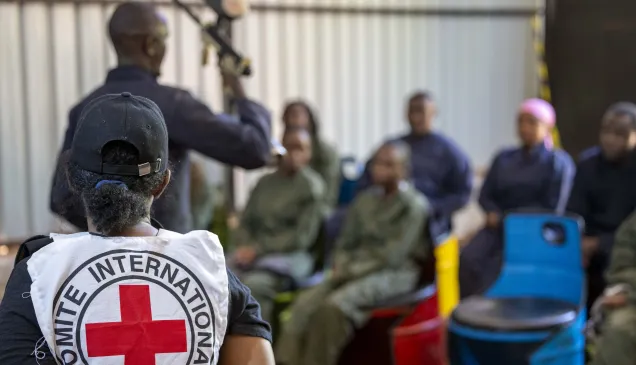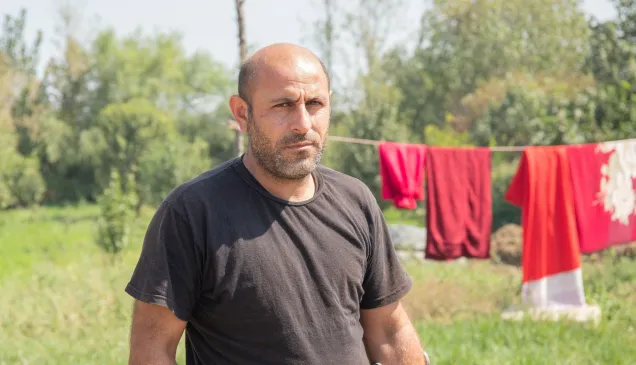Latin America: Armed violence, conflict, internal displacement, migration and disappearances were main humanitarian challenges in 2021
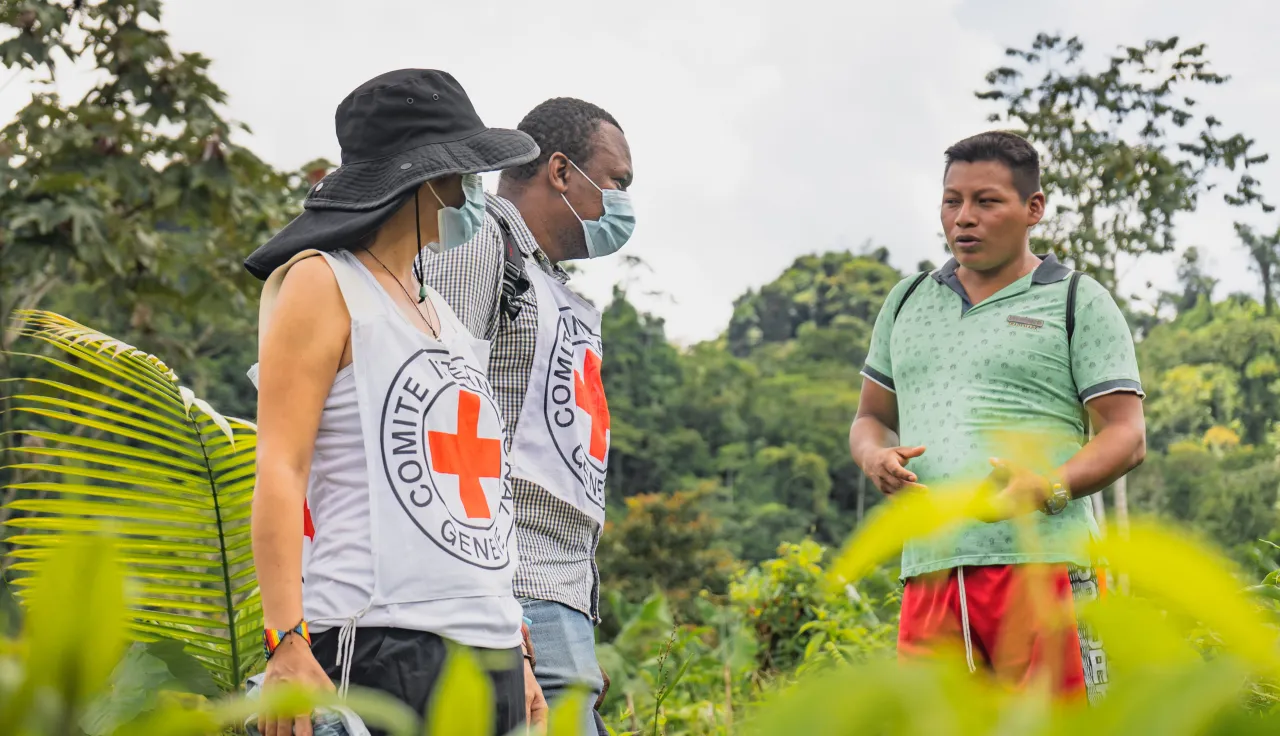
Armed violence, conflict, internal displacement, migration, disappearances, prison overcrowding – these are but a few of the many pressing humanitarian challenges that Latin America faced yet again in 2021, all while contending with the COVID-19 pandemic. In their humanitarian reports, the ICRC delegations covering Colombia, Mexico, Central America, Brazil and the Southern Cone analysed the situation in these countries in 2021 and offered insight on the year ahead.
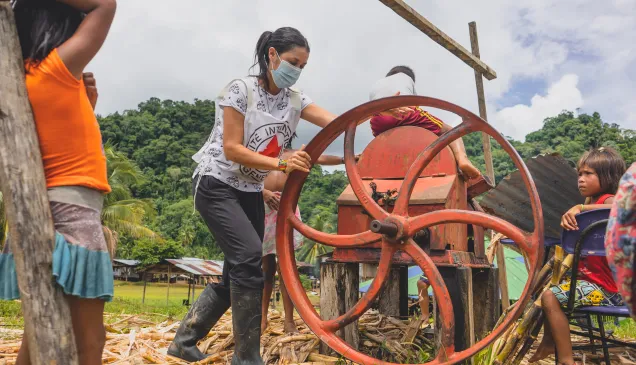
We reached 534,000 people through our humanitarian work in Colombia in 2021.
Colombia: Worrying signs of escalation
2021 saw a deterioration in the humanitarian situation in Colombia. There were more victims of explosive hazards, more restrictions on movements and more mass displacement than at any other time in the past five years. People continued to go missing, and health-care facilities and personnel continued to be the victims of attacks.
All this is the result of the six non-international armed conflicts and other violence in the country, and it's civilians who pay the price.
"The events of the past few years have presented hugely complex challenges worldwide," said Lorenzo Caraffi, head of the ICRC's delegation in Colombia. "The COVID-19 pandemic has affected us all, but not equally. Colombia has had to contend with escalating violence and armed conflict as well as the effects of the virus."
DOWNLOAD THE HUMANITARIAN CHALLENGES 2022 REPORT FOR COLOMBIA

People migrating in makeshift rafts on a river in Central America.
Armed violence in Mexico and Central America continues to cause large-scale suffering
- the increase in migration (according to official statistics, the number of detained migrants has risen by 41% in Mexico, implying an increase in the number of people on the move)
- people continuing to go missing
- overcrowding in prisons
- the legal and appropriate use of force
- the compounded risks faced by communities having to cope with climate change and public health crises, such as the COVID-19 pandemic, in communities affected by the violence.
See the news release.
DOWNLOAD THE HUMANITARIAN CHALLENGES 2021–2022 REPORT FOR MEXICO AND CENTRAL AMERICA
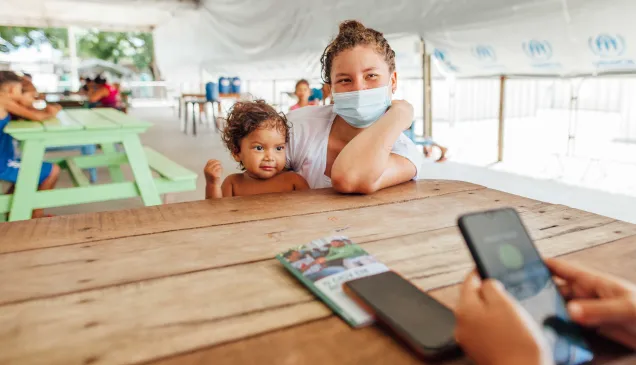
The effects of armed violence and migration in the region are far-ranging and complex – statistics tell only part of the story.
Brazil and the Southern Cone: Migration, armed violence and humanitarian principles
The ICRC offers coordinated and cross-cutting support to the people and government of Brazil to deal with the humanitarian consequences of armed violence. The affected communities continue to live with the daily threat of interruption to essential public services, alongside a high risk of contracting COVID-19. In light of this, in 2021 we worked hard to ensure that more communities benefited from our Safer Access programme, which is already in place in seven cities. The programme also helps provide answers to the families of missing people and tries to understand the needs of at-risk detainees.
We worked together with the National Red Cross Societies in the wider region, particularly on programmes to keep migrants in contact with their families. For example, we provided more than 150,000 opportunities for contact through our connectivity services. In northern Brazil, we made improvements to infrastructure at shelters and other facilities to ensure access to safe and secure environments for around 7,000 migrants and local residents. "It's not easy being far from family," said William Guaiquirima, a Venezuelan migrant in Roraima, in northern Brazil. "Since I don't have a phone, I get help from the ICRC to talk to my relatives, so I can find out how they are and tell them I'm all right."
"Supporting migrants is an important part of our work across the region and will continue to be so in the coming years," said Alexandre Formisano, head of the ICRC's regional delegation.
Another of the ICRC's priorities in Brazil and the Southern Cone region is promoting international humanitarian and human rights law. One example of our humanitarian diplomacy in action is the agreement signed by Argentina and the United Kingdom in March 2021 concerning the exhumation and identification of soldiers buried on the Falkland Islands (Islas Malvinas). We also delivered human rights training to over 900 police and surveillance officers in the region.
Read more about Brazil and the Southern Cone
DOWNLOAD THE HUMANITARIAN CHALLENGES 2021 REPORT FOR BRAZIL AND THE SOUTHERN CONE

